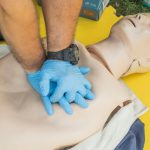Safe Exercises for Postnatal Fitness
Understanding the significance of postnatal exercises is vital for new mothers seeking to regain strength and fitness after childbirth. Not all exercises are suitable immediately after delivery. It’s crucial to focus on safe workouts that enhance recovery without overstraining the body.
Types of Safe Exercises for New Mothers:
Also to see : Revitalize your eyes: top treatments for dark circles
- Walking: A gentle way to improve cardiovascular fitness; start with short strolls and gradually increase duration.
- Pelvic Floor Exercises: Strengthening these muscles helps avert incontinence and supports overall core recovery.
- Modified Yoga or Pilates: Focuses on gentle stretches and breathing techniques, promoting relaxation and flexibility.
New mothers should consider modifications for different fitness levels. For instance, new mothers prior to pregnancy may resume light exercises sooner. Always listen to your body and progress at a comfortable pace.
The importance of pelvic floor and core strengthening cannot be overstated, as these form the backbone (literally!) of postnatal recovery. Consult a healthcare provider before starting any exercise program to ensure your chosen workouts align with your fitness goals and physical health status.
Also to read : Anxiety management : how to deal with it ?
Understanding Postnatal Recovery
Postnatal recovery is a crucial phase for new mothers, involving both physical and emotional adjustments. Understanding this process can help manage expectations and promote effective postpartum healing.
The Timeline of Postnatal Recovery
Recovery time varies significantly for each mother, impacted by delivery type and personal health factors. In general, physical healing after childbirth may take six to eight weeks, but full recovery encompasses emotional and mental health, sometimes extending longer. Patience is key, as pushing too fast can hinder overall wellness.
Physical and Emotional Challenges
During this period, mothers face physical changes such as fatigue, discomfort, and hormonal shifts. These changes can lead to emotional challenges, including anxiety or mood swings. It’s essential to acknowledge these experiences as normal aspects of postnatal recovery.
Self-Care Importance
Self-care is vital in navigating this transition. Practices like adequate rest, proper nutrition, and gentle movement aid physical healing. Moreover, tending to emotional needs through relaxation techniques or support networks underpins holistic recovery. Listening to the body’s cues and avoiding overexertion can enhance the healing journey, making it more manageable and sustainable.
Nutrition for Postnatal Wellness
Navigating the world of postnatal nutrition is crucial for supporting new mothers. After childbirth, dietary needs shift to nurture both mother and baby, especially for breastfeeding mothers. An important component of this nutrition is maintaining a well-balanced diet that aids recovery and energy levels.
For breastfeeding mothers, consuming additional calories can support milk production, while a diet rich in calcium, iron, and zinc becomes vital. Hydration cannot be overstated—it plays a critical role in postnatal wellness. Adequate fluid intake supports metabolism and milk supply.
Quick and easy meal prep can save busy new parents time while ensuring nutritional needs are met. Simple changes like prepping veggies ahead of time or cooking in larger quantities to store for later can make a significant difference in maintaining healthy eating habits postpartum. Additionally, incorporating nutrient-dense snacks, such as nuts and yogurt, can provide a convenient and healthy energy boost.
By focusing on balanced meals and easy prep solutions, new mothers can effectively manage their dietary needs, contributing to overall health and postpartum healing.
Mental Health and Wellness Strategies
Postpartum mental health is a key component of a new mother’s well-being. Emotional well-being can face significant challenges, including mood swings and anxiety. Understanding these common experiences is the first step in managing them effectively.
An overview of postpartum mood disorders is essential. Conditions like postpartum depression and anxiety are not uncommon. They can impact daily life significantly if not addressed. Therefore, being aware of the signs and symptoms is crucial for early intervention.
To enhance emotional well-being, new mothers can implement various mental health tips. Strategies such as mindfulness practices, meditation, and breathing exercises can promote relaxation and resilience. These activities provide a mental break, aiding in stress management.
The importance of support systems cannot be understated. Family, friends, and community resources offer essential networks that foster emotional strength. Connecting with local or online mom groups helps in sharing experiences and reducing feelings of isolation.
Incorporating these strategies and leveraging support can greatly improve postpartum emotional health, making the transition into motherhood more fulfilling. By prioritizing mental wellness, new mothers can navigate postpartum challenges with greater ease.
Gradual Progression in Fitness
Achieving postnatal fitness progression is a process that requires patience and careful planning. New mothers should initially focus on establishing a workout schedule that is closely aligned with their recovery pace. A good start might be two to three sessions a week, gradually increasing in intensity and duration over time as your body adjusts.
It’s crucial to be aware of signs of overexertion. Symptoms like dizziness, excessive fatigue, or persistent pain are indicators to slow down. Listening to your body ensures safe progression and prevents the risk of injury or setbacks.
Setting realistic fitness goals postpartum is essential for maintaining motivation and achieving long-term success. Break down larger objectives into smaller, achievable ones, such as increasing the duration of your walks by a few minutes each week. This approach not only celebrates small victories but also promotes sustained commitment to fitness.
Consistency is key, but flexibility should be afforded to accommodate unpredictable schedules. Prioritizing gradual and steady progress in postnatal fitness will help new mothers regain strength and confidence at a manageable pace, fostering both physical health and emotional well-being.
Expert Insights and Testimonials
Navigating postnatal fitness involves understanding and guidance. Numerous fitness experts specializing in postnatal exercise emphasize the importance of a balanced approach to recovery and fitness. According to physiotherapists, starting with gentle exercises such as walking or pelvic floor exercises is advisable. These activities lay the groundwork for more rigorous routines later on. Experts often advise new mothers to prioritise stability and strength before intensity.
Real-life testimonials offer invaluable perspectives. Many mothers share journeys where listening to their bodies proved crucial. For instance, Jessica, a mother of two, begins her fitness journey with light yoga and gradually adds pilates, finding solace and empowerment in incremental progress. Stories like hers highlight the rewarding path of patience and determination, underscoring that each step, however small, contributes to a larger tapestry of wellness.
Seeking professional help is stressed by all experts, ensuring exercises align with personal recovery timelines. Physiotherapists and trainers offer personalised plans, catering to individual needs and ensuring safety. These expert insights, combined with lived experiences, create a framework for successful postnatal fitness pursuits.
Resources for Postnatal Support
Navigating the early stages of motherhood can be daunting, but postnatal support resources are designed to ease this transition. Numerous organizations and websites provide invaluable assistance. For instance, postpartum help networks offer advice on issues ranging from breastfeeding to emotional support. They are essential in building a sense of community and understanding among new mothers.
Engaging with helpful guides can also prove beneficial, as they often cover a variety of postpartum topics. From tips on infant care to strategies for managing self-care, these resources provide critical knowledge at your fingertips.
The availability of apps and online programs has revolutionized support accessibility. New mothers can find community support for everything from fitness regimens to mental health strategies through mobile platforms and online forums. These digital tools offer flexibility and can be accessed anytime, fitting seamlessly into busy schedules.
Local community resources and mom groups further enrich the support network. Such groups offer in-person connection and advice, fostering an environment where mothers can share experiences and gather reassurance, significantly enhancing the postnatal recovery journey.





